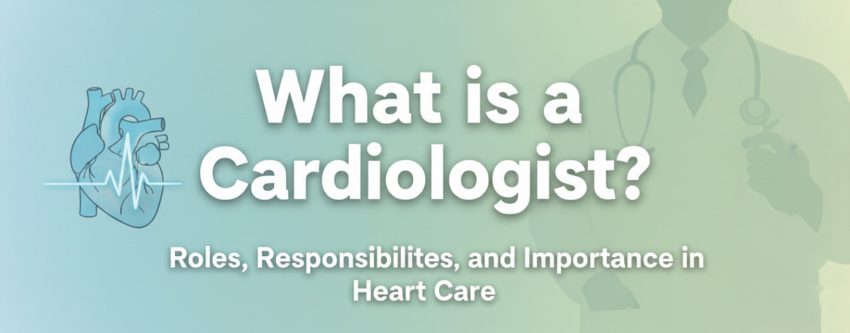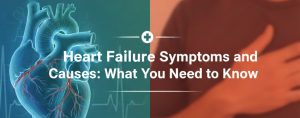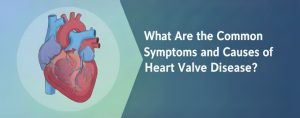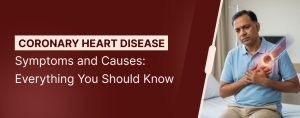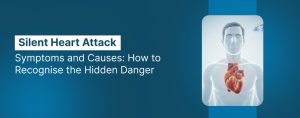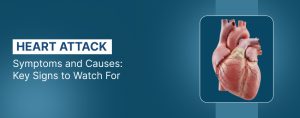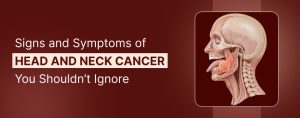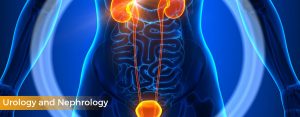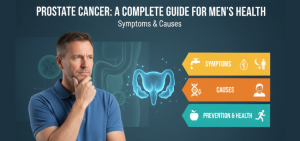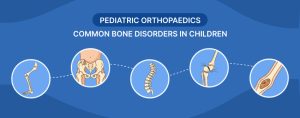Heart disease is one of the leading health concerns in India and across the world. According to the World Health Organisation (WHO), cardiovascular conditions claim millions of lives every year, often striking without warning. In such a scenario, the role of a cardiologist becomes critical. These specialists not only diagnose and treat heart problems but also help patients prevent complications through timely care and lifestyle changes.
At Venkateshwar Hospital ,the Department of Cardiology is equipped with advanced diagnostic systems, modern catheterisation labs, and round-the-clock emergency cardiac services. The hospital’s experienced cardiologists specialise in managing complex heart conditions, from preventive care to interventional treatments, ensuring patients receive comprehensive heart care under one roof.
If you have ever wondered what is a cardiologist and when you might need to consult one, this article will give you a clear understanding.
What is a Cardiologist?
A cardiologist is a doctor who specialises in diagnosing, treating, and preventing disorders of the heart and blood vessels. Their work includes managing conditions such as coronary artery disease, arrhythmias, high blood pressure, heart attacks, and heart failure.
Becoming a cardiologist requires extensive training, usually more than a decade of medical education. In India, this path begins with an MBBS degree (5 years), followed by a 3-year Doctor of Medicine (MD) in Internal Medicine, and then a super-specialisation (DM) in Cardiology. This rigorous process ensures that cardiologists are experts in handling both routine and complex cardiovascular problems.
Within cardiology, there are subspecialties such as:
- General Cardiologists – provide overall management of heart conditions.
- Interventional Cardiologists – perform procedures like angioplasty and stent placement.
- Electrophysiologists – treat rhythm disorders such as atrial fibrillation.
- Heart Failure Specialists – focus on advanced heart failure and transplantation.
- Congenital Heart Specialists – treat structural heart problems present from birth.
- Cardiac Imaging Specialists – use advanced imaging for precise diagnosis.
These focused areas ensure patients receive the right expertise depending on their condition.
What Does a Cardiologist Do?
- Once a diagnosis is made, they prescribe medications to manage symptoms and prevent complications. Alongside medicines, cardiologists recommend lifestyle changes, including diet, exercise, and stress management, to support long-term heart health.
- They also perform diagnostic tests like ECGs, echocardiograms, stress tests, and Holter monitoring to monitor heart function and guide treatment decisions.
- By combining treatment, guidance, and monitoring, cardiologists help patients manage existing heart issues while preventing future complications, ensuring the heart stays strong and healthy.
Conditions Treated by Cardiologists
Some of the most common heart conditions managed by cardiologists include:
- High blood pressure (hypertension)
- Heart attack and chest pain (angina)
- Irregular heartbeat (arrhythmia)
- Heart failure
- Cardiomyopathy
- Congenital heart defects
- Peripheral artery disease
- Structural heart disease
- Dyslipidemia
Whether it is a common concern like high cholesterol or a complex condition requiring advanced treatment, cardiologists are trained to provide comprehensive care.
Tests Ordered by Cardiologists
Cardiologists use advanced diagnostic tools to detect problems early. These include:
- Electrocardiogram (ECG) – records the electrical activity of the heart.
- Echocardiogram – ultrasound imaging of heart structure and pumping function.
- Stress Test – evaluates how the heart works under exertion.
- Cardiac Catheterisation – checks for narrowed or blocked arteries.
- Holter Monitor – records heart rhythm for 24–48 hours.
- Cardiac MRI / CT Scans – provide detailed imaging.
- Coronary Angiogram – identifies blockages in the coronary arteries.
These tests help in early intervention, often preventing major complications.
When Should You See a Cardiologist?
You should consider visiting a cardiologist if you experience:
- Chest pain or discomfort
- Breathlessness (especially during activity)
- Dizziness, fainting, or palpitations
- Uncontrolled high blood pressure or cholesterol
- Swelling in the legs or sudden weight gain
- A family history of early heart disease
Often, your primary doctor may refer you, but you can also directly book an appointment if symptoms persist.
Importance of Cardiologists in Heart Care
The significance of cardiologists can be understood in three areas:
- Prevention – Identifying risk factors like high blood pressure, diabetes, or high cholesterol.
- Treatment – Managing conditions such as heart attacks, arrhythmias, or heart failure.
- Long-term Care – Providing rehabilitation, regular monitoring, and lifestyle guidance.
This continuous involvement ensures patients not only recover from emergencies but also prevent recurrence and maintain a good quality of life.
At Venkateshwar Hospital, our team of skilled cardiologists is dedicated to providing comprehensive heart care. Working closely with the Cardiology, Cardiothoracic & Vascular Surgery, and Paediatric Cardiology departments, we support patients at every stage, from prevention and early diagnosis to advanced treatment and long-term recovery. With modern technology, 24×7 emergency support, and personalised follow-up, we ensure that each patient receives precise care and guidance for a healthier heart.
Do You Need a Referral?
In some healthcare systems, a referral from a general physician is needed, especially for insurance coverage. However, in private hospitals in India, including Venkateshwar Hospital, patients can book an appointment directly with a cardiologist.
How to Prepare for a Cardiologist Appointment?
Being prepared ensures you get the most out of your consultation. Carry with you:
- Medical and family history records
- List of symptoms and their duration
- Medications you are currently taking
Questions to ask may include:
- What is causing my symptoms?
- What tests are necessary?
- How can I reduce my future risk?
During your first visit, expect a physical examination, review of your health parameters, and possibly initial tests.
Also Read – Expert Tips from Delhi’s Top Cardiologists: Keeping Your Heart Healthy
Conclusion
Cardiologists play a central role in preventing, diagnosing, and treating heart diseases. Understanding what is a cardiologist and when to consult one can make a life-saving difference.
At Venkateshwar Hospital, expert cardiologists supported by advanced infrastructure provide holistic heart care, from emergency treatment to long-term follow-ups. If you are experiencing chest discomfort, unexplained breathlessness, or have a family history of heart disease, seeking timely cardiology care can help protect your heart and improve your overall health
Medically Reviewed by — Dr. Ritesh Sanguri (Associate Director – Cardiology)
